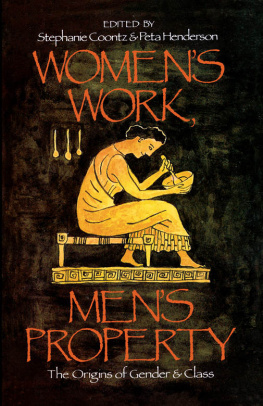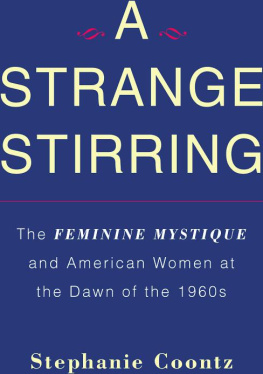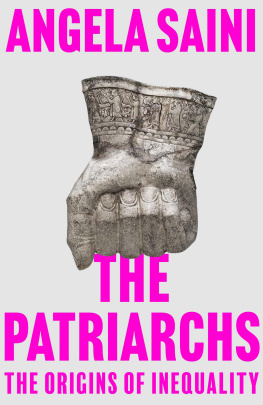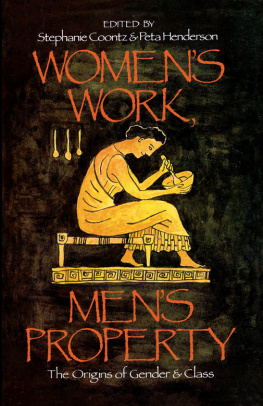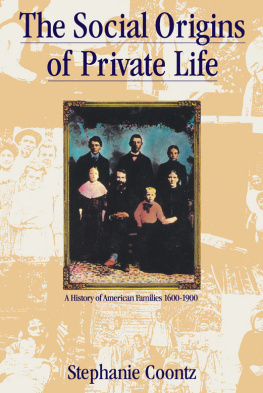Womens Work, Mens
Property:
The Origins of Gender and Class
Edited by Stephanie Coontz
and Peta Henderson

British Library
Cataloguing in Publication Data
Womens work, mens property : the origins of
gender and class.
1. WomenSocial conditions
I. Coontz, Stephanie II. Henderson, Peta
305.42 HQ1154
First published 1986
Second printing 1986
Stephanie Coontz & Peta Henderson
Verso
6 Meard Street, London W1F 0EG
20 Jay Street, Suite 1010, Brooklyn, NY 11201
www.versobooks.com
ISBN-13: 978-0-86091-112-8 (PB)
ISBN-13: 978-1-78478-799-8 (US EBK)
ISBN-13: 978-1-78478-798-1 (UK EBK)
CONTENTS
IN MEMORY
OF
LILA LEIBOWITZ
Nicole Chevillard was born in Bois-Colombes, France, in July 1947. She lives in Paris, where she works as an economist specializing in African Affairs. She holds the Doctorat dEtat from the University of Paris X-Nanterre (1979). Her dissertation, Les Ingalits conomiques entre sexes: Fondements roles et articulations, was written jointly with Sbastien Leconte.
Stephanie Coontz was born in Seattle, Washington in 1944. She received a B.A. in the history honours programme at the University of California and an M. A. from the University of Washington, where she was a Woodrow Wilson Fellow. She was an associate editor of the International Socialist Review, and has taught at The Evergreen State College in Olympia, Washington since 1975. She co-edited and contributed articles to Life in Capitalist America (Pathfinder 1974), and is currently completing a manuscript on the history of American families.
Peta Henderson was born in Belfast, Northern Ireland, in 1937. She holds a B.A. from Swarthmore College, an M.A. from McGill University, and a Ph.D. from the University of Connecticut (1976). She is a Member of the Faculty in Anthropology at The Evergreen State College, Olympia, Washington, where she has taught since 1974. She has done field research in Belize and Puerto Rico and has published articles on development and population policy.
Sbastien Leconte was born in Douala, Cameroun, in September 1949. He currently lives in Paris, where he works as an economist. He holds the Doctorat dEtat from the University of Paris X Nanterre (1979). His dissertation, Les Ingalits conomiques entre sexes: Fondements rles et articulations, was written jointly with Nicole Chevillard.
Lila Leibowitz was born in New York City in 1930. She was Associate Professor of Anthropology at Northeastern University from 1972 until her untimely death in June 1984. She was an honours graduate at Brooklyn College, and earned her M.A. and Ph.D. from Columbia University (1971). She authored Females, Males, Families: A Biosocial Approach and numerous journal articles.
Monique Saliou was born in 1952. She graduated from the Ecole Normale Superieure, agrge in history. She specializes in the history of religions. She is the author of numerous articles in feminist journals and in theoretical journals of the Fourth International.
This book began as separate strands of research in America and France. We would like to thank the International Research Institute for Scientific and Democratic Socialism and the Robert H. Langston Foundation for bringing the authors together and providing travel funds so that we could meet and discuss our work. The Institute also funded the translation of the French articles into English, which was done by Aaron Barzman. The editors would also like to thank The Evergreen State College for providing us with research time, The Evergreen State College Interlibrary Loan Department for their remarkable ability to track down the many books and articles we requested, and our Evergreen State College students for their insightful comments and criticisms.
Explanations of Male Dominance
Male dominance is one of the earliest known and most widespread forms of inequality in human history. To some, the very idea of a book on the origins of sexual inequality is absurd. Male dominance seems to them a universal, if not inevitable, relationship that has been with us since the dawn of our species. A growing body of evidence and theory, however, suggests that this is not the case, and a number of scholars have begun to address the issue of male dominance as a historical phenomenon, grounded in a specific set of circumstances rather than flowing from some universal aspect of human nature or culture. The essays in this volume offer differing perspectives on the development of sex role differentiation and sexual inequality (the two are by no means identical), but share a belief that these phenomena did have origins, and that these must be sought in sociohistorical events and processes. Before turning to these theories, we would like critically to review some of the alternative explanations of sexual inequality.
A starting point for many theories of gender inequality is the assumption that biology is destiny: the roles men and women play in society, and the different privileges attached to these roles, are said to be fundamentally determined by our genes, which are in turn the product of natural selection. One common approach within this general framework of biological reductionism is to explain human sex role patterns and inequalities by reference to our primate heritage. The most popular model for this approach is the baboon. The scenario is as follows: Male baboons are twice as large as females; this sexual dimorphism
There are a number of problems with this approach. In the first place, there is much more variability in primate behaviour than these authors admit. Some species are highly dimorphic; some are not. Mating patterns range from monogamy to promiscuity (by both males and females), while parenting and socialization behaviours are extraordinarily diverse among different species, or even in the same species under different environmental conditions.
Where aggression and male dominance are found in primate groups, there is some question as to how much of this is natural and how much a response to stress. The male dominant savannah baboons live in game parks where predators and humans are concentrated in numbers far beyond those likely in aboriginal conditions. There is considerable evidence that such stressful circumstances, especially captivity, markedly increase hierarchy and aggression. Indeed, the noted researchers who filmed Baboon Social Organization (1963) only induced what they called latent dominance behaviour by artificial feeding, while forest baboons placed in cages and fed with clumps of food that had to be competed for showed a great increase in fighting, aggression, and dominance behaviour.
Finally, there is little evidence that aggressive or dominant behaviour gives males privileged access to females, thus allowing them to pass on their supposedly more aggressive genes. Gorillas and chimpanzees are not normally sexually aggressive and males tend to wait patiently for an oestrous female to make herself available. Among chimpanzees and orangutans, sex is usually initiated by the females, and their choices seem to have little to do with the males rank.
Of course, the capacity for aggressive and dominant behaviour was undoubtedly an important part of primate survival, but this is not the same thing as having such behaviour determined If primate behaviour is this plastic, it is only reasonable to suppose that plasticity is more pronounced in humans, whose much longer period of neotony (physical immaturity at birth) makes them almost totally dependent on learning.

